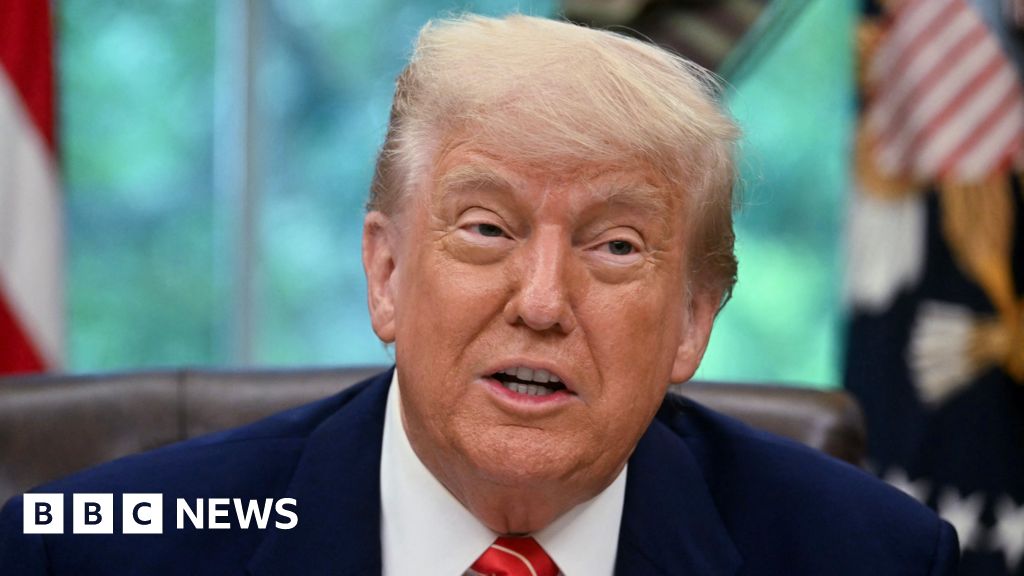ARTICLE AD BOX
By Michael Race
Business reporter, BBC News
Image source, Getty Images
The government will continue to come under pressure to help people facing high energy bills into next year, the Institute of Fiscal Studies has warned.
The IFS said calls for help were likely to continue for "at least" another year if oil and gas prices do not fall.
It comes after Chancellor Rishi Sunak announced on Thursday that every UK household would get an energy bill discount of £400 this October.
The government has insisted the support announced by Mr Sunak was "temporary".
But analysts have forecast that energy bills will be even higher in spring 2023 than predicted for October.
As part of the £15bn package of support outlined by the chancellor, the poorest households will also get a payment of £650 to help with the cost of living and pensioners and disabled people will receive more targeted support.
The intervention came after the government had come under growing pressure to help people with the soaring cost of living.
The energy regulator Ofgem has warned that millions could be left struggling if energy prices rise by a further £800 in October - to £2,800 a year for a typical home - as expected.
Households have already been hit by a £700 rise in April.
Although the support was broadly welcomed and described as a "genuinely big package" by the IFS, a think tank, its deputy director Carl Emmerson said: "If oil and gas prices remain high then the government will doubtless come under pressure to continue the additional household support for at least a further year."
The boss of the UK's energy regulator had warned that if the government had not announced further support for October, then up to 12 million people could have been placed into fuel poverty.
It is not yet known how many homes will be saved from falling into the bracket - defined as spending 10% or more of disposable income on energy - under the new measures.
Adam Scorer, chief executive of fuel poverty charity National Energy Action, said the chancellor's measures averted "the darkest of outcomes" but warned "millions will still be struggling and the energy crisis is far from over".
He said a "large, more targeted intervention is what was needed ahead of winter", and said the government needed to plan for energy prices to remain high for some time.
The cost of living is set to continue to rise, with inflation - the rate at which prices go up - at a 40-year high and forecast to top 10% later this year.
Food, fuel and other prices for goods began to rise as global economies have reopened from Covid restrictions but have surged following Russia's invasion of Ukraine due to concerns over potential shortages and supply disruption.
Mr Sunak has insisted that his new measures to ease the cost of living will have a "minimal impact" on inflation.
He told the BBC the government had "designed something that will continue to incentivise and encourage investment".
Meanwhile, analysis firm Cornwall Insight, has predicted the energy price cap, which limits how much providers can raise prices, will be marginally higher in Spring 2023 (£2,818) than the price cap this Autumn (£2791).
Mr Sunak announced the cost of support for energy bills will be partly offset by 25% windfall tax on oil and gas firms' profits, which have soared in recent months, largely due to the war in Ukraine.
For example, Shell recently reported a record £7bn profit in the first three months of this year while BP made £5bn, the highest for 10 years.
A windfall tax is a one-off levy imposed by a government on a company. The idea is to target firms that were lucky enough to benefit from something they were not responsible for - in other words, a windfall.
Mr Sunak has avoided calling his measure a windfall tax, instead referring to it as a "temporary, targeted energy profits levy".
Dan Atzori, research partner at Cornwall Insight, said introducing a windfall tax was "not an enduring solution to the endemic problem of fuel poverty in this country".
He warned that although a tax on profits may provide an "immediate solution" to help people, it "comes with inherent risks to both investment and energy security".
He said a "key competitive advantage" for the UK globally was that it is seen as "an investment-friendly jurisdiction" and if windfall taxes were repeated over time, it risks "creating an unstable environment, and may lead to energy producers, who operate globally, investing and relocating to other areas".
"Not only would this hamper the UK's income, but it may deter investment in renewables, slowing our move towards net zero and risking the UK's energy security in the longer-term," he added.
Image source, Getty Images
The government had rejected the idea of a windfall tax on energy firms' profit - a policy repeatedly called for by Labour - over fears it could deter investment in the UK.
But Mr Sunak said with the sector "making extraordinary profits" he was "sympathetic to the argument to tax those profits fairly".
However, energy giant BP said while it knew "how difficult things are for people" Thursday's announcement was "not for a one-off tax" but a "multi-year proposal".
"Naturally we will now need to look at the impact of both the new levy and the tax relief on our North Sea investment plans," a statement said.
The body which represents oil and gas firms, Offshore Energies UK, said the levy would "drive away" investors and cut UK energy production.
The new measures add to around £17bn of support already given by the government. This included one-off £150 council tax rebates for most homes in England and Wales and matched funding for the other devolved nations.

 2 years ago
45
2 years ago
45








 English (US) ·
English (US) ·